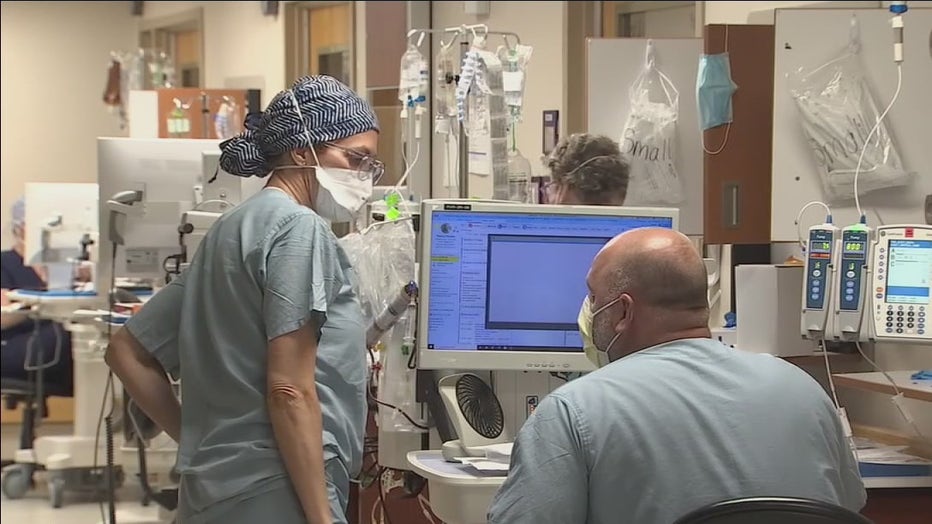'It's well worth it': Longtime nurses work to inspire next generation
TAMPA, Fla. - The field of healthcare nurses is evolving, and nurses are dealing with much more now than even a few years ago.
Nurses are often the first and last person you see at the hospital, and there aren’t enough of them. Longtime pediatric nurse Felicia Glover works to inspire the next generation and shift how people think of a nurse’s career.
"We're always there as nurses. We're always there caring for people, always there to lend their support, always there because we're nurturers. We're caregivers," said Glover, the nurse manager for the emergency department at St. Joseph's Children's Hospital in Tampa.
Glover has been a nurse for 31 years, and she said the field needs more people.
"Whenever I have the one that's thinking about becoming a nurse, I tell them, ‘If you want it, you can do it. You can persevere,’" said Glover. "It is a career that's rewarding that I personally have enjoyed, and I will continue to enjoy. But if you want to become a nurse, by all means do it."
On National Nurses Day Friday, it’s no secret there’s a nurse shortage, but there’s no shortage of interest in becoming one. University of South Florida College of Nursing dean Usha Menon explained what’s happening across the country.
"Certainly the same pressure that hospitals and health care organizations are feeling are being felt by schools of nursing and colleges of nursing around the country, because we simply don't have enough seats. We don't have enough faculty to teach these students," said Menon, who is also the senior associate vice president at USF Health.

As a result, Menon said schools are evolving how they teach.
"Some of the lessons we've learned through the pandemic are that we can introduce more simulation, and perhaps that becomes a factor in how many students we can admit if we don't have to run clinical groups at every hospital," said Menon. "So we've learned that we could use more simulation, which is something we traditionally didn't do. We kind of felt like all of the experience or training had to be at the clinical site."
Focus is also turning to better preparing nursing students to transition into the workplace.
"The world that they're going into is one where there is an even more acute shortage of nurses than there has been in the past. So that naturally affects the way you practice because you may be taking more patients, you may be working longer hours, things that we don't typically expect a new graduate to do," said Menon.
That demand is concerning especially for burnout. Menon said more nurses are seeking better pay, better hours and better shifts. More nurses are also looking for balance.
"I think that people are looking for what is a work-life balance to them. What does that mean to you? And I think it's flexibility," said Angel Brown, the director of talent acquisition and employee health at BayCare Health System in Tampa Bay. "A lot of it is about being flexible, being able to work and take care of your home life, but also able to take care of your professional life as well."
Brown said they’ve also seen changes in what types of positions nurses are looking for, moving from travel nurse jobs to more stable jobs.
"During the pandemic, there were so many opportunities for them to be mobile. But one of the things that we're starting to see a trend back is that many of them are coming back home for some stability," said Brown. "Being at home base where you feel like you are part of a team and a part of that team that is your family, that's what we're starting to see now."
Glover said it’s been a challenging couple of years, and she hopes future nurses stay encouraged.
"It's going to be challenging at times. But you know what? It's well worth it," said Glover.
USF’s nursing program dean said educators are hearing more stories about young nurses deciding early on if they want to stay in the field or leave. Menon said it’s important for researchers and hospitals to find out what they’re facing so they can help keep nurses.

